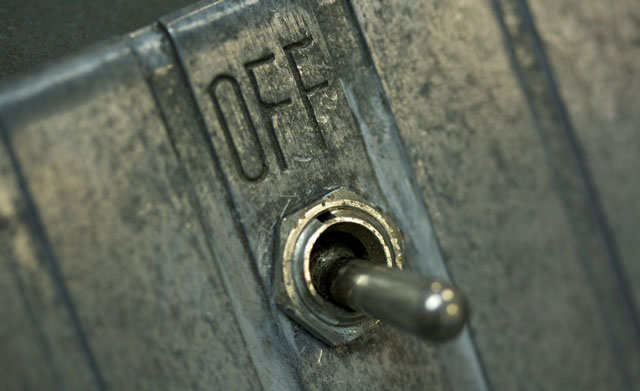 I always seem to be defending myself when the topic of cellphone or Internet addiction comes up. When it happens, everyone around the table turns to look at me first.
I always seem to be defending myself when the topic of cellphone or Internet addiction comes up. When it happens, everyone around the table turns to look at me first.
Why is it that I have to explain myself? Yes, I have a smartphone and, yes, like many people, I use it a lot. Except I don’t actually use it for making calls — something I avoid at all costs (haha). I just prefer communicating over e-mail, text, DM — or anything that allows me to type rather than have a voice conversation.
As for the rest of what I do on my phone, much like everyone else, it’s to find out with what’s happening in the world via RSS feeds, catch up on social networks and check e-mail. Oh, and take pictures of my food. And maybe Instagram it. But that hardly makes me addicted to the Internet, or my phone.
Just last month, an Android app called Locket, which pays users to display ads on their lock screens, released new data about its users that showed the average person unlocks their smartphone 110 times a day. During peak times, some users unlock their phones up to 900 times in a single day.
Another report, from Kleiner Perkins Caufield & Byers, showed that people check their phones 150 times a day on average, and that the most popular activity was taking pictures and sharing them. I know I fall way below the average because I certainly don’t have time to check my phone every six minutes or take selfies and share them on my social networks.
I’ve been accessing the Internet for the past 15 years, which is exactly half of my time on this planet. To me, being online or being connected is part of life. It’s part of my daily routine from the moment I wake up — with my phone being the first thing I look at. In fact, I can do all my monthly payments via the a banking app before getting out of bed and brushing my teeth. I think that’s pretty normal in 2013. I’ve been doing it for so long that I cannot simply “switch off” or take a break from the Internet — the very thought of doing so is ridiculous.
Just as ridiculous as Paul Miller, a reporter for The Verge, who quit the Internet for an entire year. He did it from May 2012 to May 2013 to see if he could live a year offline. He says he used the time to try to fix and improve himself and become a better person. But you don’t need to quit the Internet to better yourself — it can be done by seeing a therapist, while still accessing the Internet like a normal person.
According to some “experts”, Internet addiction is almost as bad as being a drug addict. A study carried out by researchers at Swansea and Milan University showed that when heavy Internet users go offline, they suffer from symptoms similar to those experienced by drug users without their fix.
Of course, I’m no expert in the field, but I can’t grasp this idea that heavy use of the Internet can be equated to addictive drugs. Sure, I suffer from “discomgoogolation” on the odd occasion, but that doesn’t put me on the same level as a drug addict.

I don’t think switching off from the Internet is a good idea, for the short term, long term, or even on holiday. It’s okay to go on a relaxing holiday and read your feeds, share an Instagram photo every now and then, or do a social media check-in.
The key thing here is striking the right balance. My current Internet and smartphone usage patterns have no negative impact on those around me. I know when to switch off my laptop, or when sitting at the dinner table not to check my phone.
In the words of Sir Tim Berners-Lee, British inventor of the World Wide Web: the Internet has no “off switch”. Well, thank goodness for that. — (c) 2013 NewsCentral Media
- Nafisa Akabor writes for TechCentral. Follow her on Twitter




